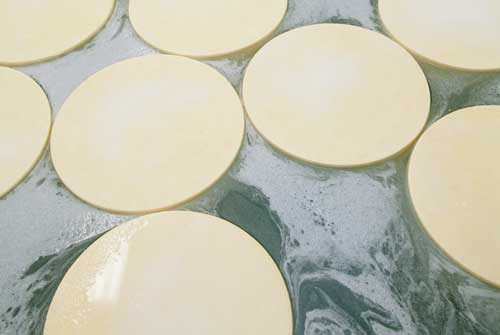
If a trade pact between Canada and the European Union gains approval, our neighbors to the north would be subject to double the current cheese imports from Europe. The deal would be one small component of a much larger free trade agreement with the European Union, and many Canadian dairy producers believe their industry was thrown under the bus to gain other concessions from Europe.
At the moment, Canadian federal officials who support the plan point to the fact that nearly 96 percent of the Canadian cheese market is serviced by the domestic industry. This deal could give Europe the potential to export 30,000 metric tons or 66.1 million pounds of cheese annually. Based on our math, that would give the European continent tariff-free access to over 7 percent of Canada's nearly 420,000-metric-ton cheese market.
As eluded to earlier, this decision is not sitting well with Canadian dairy farmers who operate under a supply management system. "Dairy farmers will not support the Harper government (Harper is Canada's prime minister) agreeing to a deal with the EU that gives away the Canadian cheese market that Canadian dairy farmers and cheesemakers have worked so hard to develop over the years," noted the Dairy Farmers, an industry group representing the nation's 12,500 dairy producers.
Representatives for Canada's prime minster note that the Canadian cheese consumption is growing by an estimated 8,000 metric tons a year. In pointing out that growth, officials argue the impact will be minimized in a relatively short time period. To some degree that is true. If the growth figures are accurate, the European cheese deal could be absorbed in roughly two years.
That still isn't enough for Canadian dairy producers who have invested heavily in quota. In Ontario and Quebec, which are home to four out of five Canadian dairy farms, producers are demanding more. According to The Globe and Mail, Ontario and Quebec provincial leaders are demanding compensation for the influential constituency. It appears that concession may need to happen in order for the trade pact to gain approval in those two provinces.
It is important to point out the deal is not all one-sided for Europe. In a compromise between the European Commission and the Canadian government, Canada will gain tariff-free access to European markets for beef. To make that deal, European trade negotiators wanted access to lucrative Canadian dairy market in exchange.
As part of the deal, Canada also would gain duty-free access into Europe's cheese markets. While that may not bear much fruit at the present moment, should Canada's cost of production fall or its supply management system go awry, that trade language could bear substantial fruit one day. Presently that is little consolation to Canadian dairy producers and processors who face the likelihood of substantial cheese imports.








